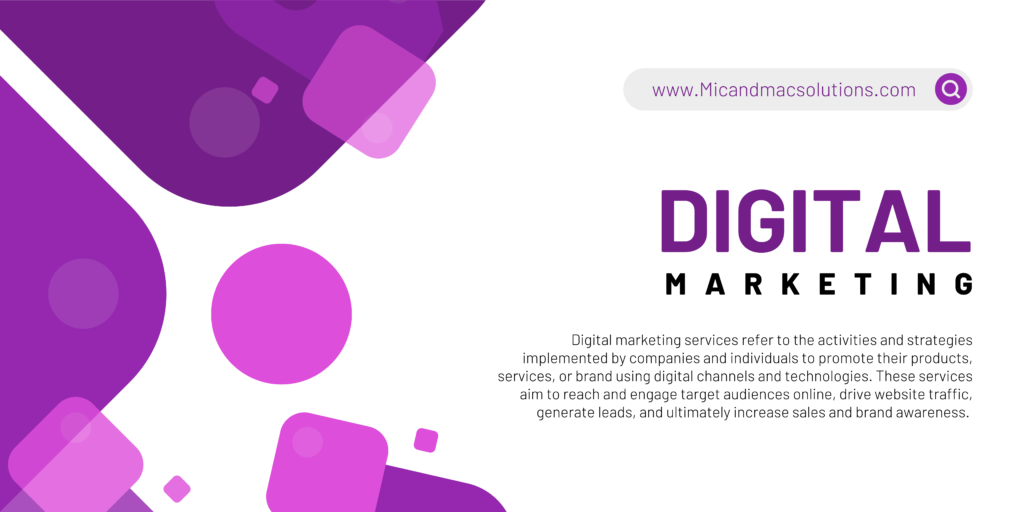
Several famous brands have implemented highly successful digital marketing strategies. While it’s challenging to narrow down to just a few, here are some notable examples:
- Coca-Cola: Coca-Cola has consistently excelled in digital marketing by leveraging storytelling and user-generated content. They have launched campaigns like “Share a Coke,” where personalized bottles with people’s names were distributed, encouraging social media sharing. Coca-Cola also utilizes social media platforms effectively to engage with their audience and create interactive experiences.
- Nike: Nike is known for its powerful digital marketing campaigns that focus on storytelling and inspiration. They have successfully utilized social media, influencer partnerships, and user-generated content to connect with their target audience. Nike’s “Just Do It” campaign, along with their Nike+ digital ecosystem, demonstrates their ability to blend technology, innovation, and emotion in their marketing strategy.
- Apple: Apple has mastered the art of creating hype and anticipation around their product launches through carefully planned digital marketing campaigns. They effectively use social media, online advertisements, and content marketing to create buzz and engage their loyal customer base. Apple’s focus on simplicity, design, and user experience is consistently reflected in their digital marketing efforts.
- Airbnb: Airbnb has disrupted the travel industry with its innovative digital marketing strategy. They have built a strong brand through user-generated content and storytelling. Their campaigns highlight unique accommodations and experiences, leveraging social media and influencers to showcase the value of their platform. Airbnb’s focus on personalization and community engagement has been key to their success.
- GoPro: GoPro has created a strong digital presence by tapping into user-generated content and leveraging social media. They encourage their customers to capture and share their thrilling moments using GoPro cameras, resulting in a vast library of user-generated content. GoPro effectively curates and shares this content across their digital channels, creating an engaged community and showcasing the capabilities of their products.
These brands demonstrate the importance of storytelling, user-generated content, social media engagement, and creating unique experiences in digital marketing. Their strategies focus on building strong brand affinity, leveraging technology, and engaging their target audience through emotional connections. By consistently delivering compelling and shareable content, these brands have successfully captured the attention and loyalty of their customers.

What digital marketing can do to build a brand
Digital marketing plays a significant role in building and strengthening a brand. Here are some ways in which digital marketing contributes to brand development:
Increased Brand Visibility: Digital marketing provides opportunities to increase brand visibility through various channels such as search engines, social media platforms, email marketing, and online advertising. By optimizing your online presence and leveraging targeted digital campaigns, you can reach a wider audience, increase brand exposure, and create brand awareness.
Targeted Audience Engagement: Digital marketing allows you to target specific audience segments based on demographics, interests, behavior, and online preferences. Through social media engagement, content marketing, and personalized messaging, you can effectively engage with your target audience, build relationships, and foster brand loyalty.
Brand Storytelling: Digital marketing provides platforms for telling your brand’s story. You can create and share compelling content through blog posts, videos, infographics, and social media posts. By conveying your brand’s values, mission, and unique selling propositions, you can connect with your audience on an emotional level and differentiate your brand from competitors.
Building Brand Authority: Digital marketing enables businesses to position themselves as industry leaders and build brand authority. By consistently sharing valuable and insightful content, participating in online discussions, and providing solutions to customer problems, you can establish your brand as a trusted source of information and expertise in your industry.
Online Reputation Management: Digital marketing allows you to monitor and manage your brand’s online reputation. By actively engaging with customers on social media, addressing feedback, and promptly resolving issues, you can build a positive brand reputation. Responding to customer reviews and testimonials also helps shape public perception and credibility.
Customer Advocacy and User-Generated Content: Digital marketing can encourage customer advocacy and generate user-generated content. Satisfied customers can share their positive experiences on social media, review platforms, and forums, serving as brand ambassadors. By facilitating and promoting user-generated content, you can amplify your brand’s reach and authenticity.
Measurable Brand Performance: Digital marketing provides access to data and analytics that allow you to measure the performance of your brand marketing efforts. By tracking key performance indicators (KPIs) such as website traffic, social media engagement, conversion rates, and customer feedback, you can gain insights into the effectiveness of your brand-building initiatives and make data-driven decisions.
In summary, digital marketing empowers businesses to build brand visibility, engage with target audiences, tell compelling brand stories, establish authority, manage online reputation, leverage customer advocacy, and measure brand performance. By strategically utilizing various digital marketing channels, businesses can effectively develop and strengthen their brand identity in the online landscape.


